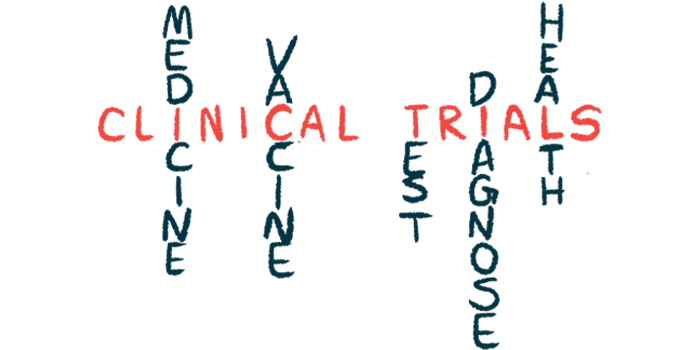Dosing begins in clinical trial of potential COPD therapy APG808
Therapy could require less frequent injections than other treatments

Apogee Therapeutics has begun dosing healthy volunteers in a Phase 1 clinical trial of APG808, the company’s anti-inflammatory injection therapy for chronic obstructive pulmonary disease (COPD), asthma, and other inflammatory disorders.
“Launching our second clinical program, ahead of initial timeline expectations, brings us one step closer to providing potentially best-in-class biologics designed to significantly improve therapeutic options for patients with [inflammatory and immunologic] diseases, and further builds our track record of execution,” Michael Henderson, MD, CEO of Apogee, said in a company press release.
The Phase 1 trial is expected to enroll about 32 healthy adults. Participants will be given single, subcutaneous (under-the-skin) injections of either APG808 or a placebo. Evaluations will assess the therapy’s safety and pharmacokinetics, or its movement into, through, and out of the body.
Interim trial data are expected in the second half of this year, according to Apogee. If results are positive, the company plans to launch a Phase 2 trial in 2025 to test APG808 against a placebo in people with moderate to severe COPD.
COPD clinical trial could be followed by asthma study
Apogee also intends to launch a Phase 1b trial in asthma patients in 2025, should the findings in healthy volunteers be promising.
COPD and asthma are both associated with type 2 inflammation, which is marked by an elevation in blood levels of immune cells called eosinophils. This type of inflammation is thought to contribute to lung inflammation in COPD as well as in asthma.
APG808 is designed to block the activity of interleukin 4 receptor-alpha (IL-4Ralpha), a receptor protein on immune cells that is activated by two inflammatory signaling molecules, interleukin-4 (IL-4) and interleukin-13 (IL-13). Both are thought to drive type 2 inflammation.
Apogee says APG808 is able to suppress IL-4Ralpha with potency similar to Dupixent (dupilumab), an anti-inflammatory medicine developed by Sanofi and Regeneron Pharmaceuticals that’s approved for several indications in the U.S. and is under consideration for approval in COPD.
Both APG808 and Dupixent are antibody-based medications administered by subcutaneous injection. While Dupixent is administered every other week, APG808 is designed to have a longer half-life, meaning it lasts longer in the body and may allow less frequent dosing.
The experimental therapy has the potential for dosing once every six weeks or even every other month, according to Apogee.
“By targeting known biologic drivers of disease and utilizing advanced antibody engineering such as improved half-life, Apogee aims to overcome limitations of existing therapies,” said Carl Dambkowski, MD, Apogee’s chief medical officer.
APG808 is the second of Apogee’s experimental anti-inflammatory therapies to enter clinical testing. The company recently announced positive interim data from a Phase 1 trial testing APG777, its lead candidate for the inflammatory skin disorder atopic dermatitis.
“We demonstrated the potential benefits of optimizing antibody properties with APG777, and now hope to do the same with APG808, which, in head-to-head preclinical studies, demonstrated similar potency to current therapies but with a significantly longer half-life,” Dambkowski said. “Importantly, this points to potentially less frequent dosing for patients with COPD, which could significantly improve quality of life.”







